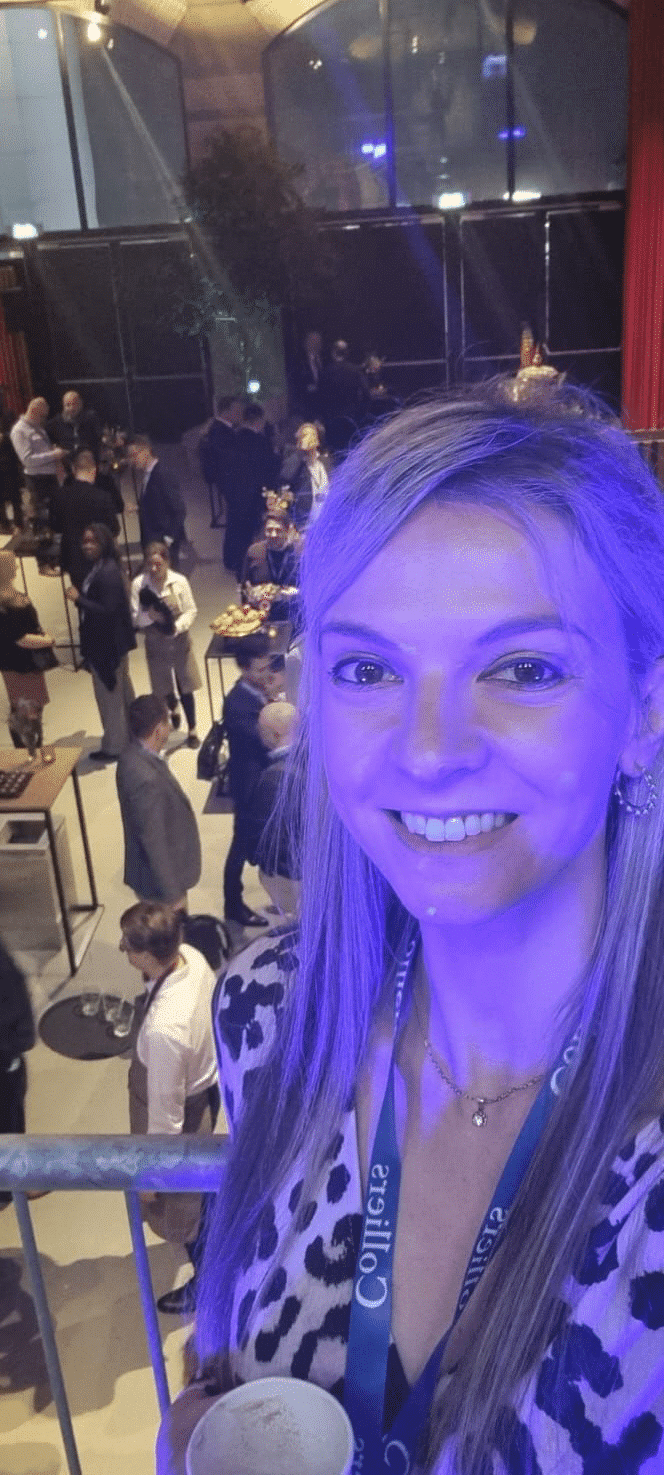The Magenta team has been extremely busy this year. We’ve travelled all over the UK (and sometimes further afield) to attend trade shows, speak at key industry conferences, and report from others, ensuring we kept our finger on the pulse.
2023 was also the year we took things up a notch with our own research and content projects, forming several initiatives, including our People Matters Series, research on Generative AI and its potential impact on the communications profession, and the Good Business Campaign.
So, for all of you who haven’t swapped the laptop (or toolkit) for the chocolate bunnies just yet, we thought we’d share some of our highlights from the past 12 months.
Managing workplace conflict

In March, Magenta’s managing director, Jo Sutherland, chaired a session at IFMA World Workplace Europe, in Rotterdam, on managing workplace conflict through business-to-employee communications. Since 2020, organisations and their workplaces have experienced monumental upheaval. The shift to new ways of working, especially hybrid models, can cause consternation and uncertainty among employees if the transition is neither managed nor communicated effectively.
A survey on the subject we undertook this year, conducted among 2,000 full-time employees, revealed almost two-thirds (64%) have been in a workplace where conflict between colleagues occurred, with 15% saying it had caused them to quit and a further 15% admitting they were looking for new roles as a result.
These findings stress how important it is for organisations to communicate with their people in ways that consider their needs and minimise their stress. You can read more about our research into B2E communications and the steps you can take to make it improve the practice in our whitepaper B2E: The glue that holds everything together.
More Magenta travels
A month later, Magenta senior consultant Greg Bortkiewicz attended the Workplace Trends Research Summit in London, an annual conference known for its data-led insights.
Employee wellbeing and hybrid working – the latter a topic that would continue to dominate the headlines throughout the year – were key themes at the conference. Delegates heard the results of a pilot study at Brunel University that found possible correlations between acoustic privacy and personal traits on the burnout levels of UK office workers.
Meanwhile, Dr Dan Wakelin presented the findings from a study on engagement in the workplace. We may be in the hybrid era, but Dr Wakelin’s research found that presence in the office created an increased sense of belonging and, in some cases, a loyalty-like scheme with special privileges. Food for thought for business leaders considering where and how their employees work over the long term. Greg shared more of his highlights from the conference in this blog.
In May, the UK’s Real Estate Investment and Infrastructure Forum (UKREiiF), took place in Leeds. Magenta senior consultant Craig Peters visited and found a corporate real estate sector now determined to hit net zero and play its part in ESG. He heard from property experts at British Land, Lloyds Bank, and the UK Green Building Council, sharing his recap of UKREiiF in an article for Facilities Management Journal.
The year of AI
Another ever-present this year was AI. It was the Collins Dictionary’s word of the year and with good reason. Following the launch of ChatGPT, AI exploded in 2023 with all sorts of technology companies launching so-called ‘generative AI’ tools. Bill Gates was quoted as saying, “Generative AI has the potential to change the world in ways that we can’t even imagine.” Tesla founder Elon Musk claimed that “we will have for the first time something smarter than the smartest human”.
But the excitement was matched by an equal dose of trepidation, with fears growing about the accelerating pace of AI as well as the risk it poses to jobs and life in general. Like so many other industries, facilities management is currently working out not only how it can exploit AI to create efficiencies and enhance its service but also what it might mean for a profession that has for so long positioned itself as a people-orientated discipline.
In November, Magenta’s Simon Iatrou visited the annual IWFM London Conference, where the theme was aptly described as “uh oh, AI will be able to do my job”. Organisations presenting on the day included Colliers, ISS Facility Services, Just Eat for Business and Microsoft.
The event was presented by AI in the form of two virtual presenters, though IWFM London region chair Gary Binder had to step in several times to keep the event on track. Perhaps this was a reminder that AI technology may be advancing but it is still far from perfect.
Presenting their research on AI and its potential impact on real estate, Suzie Braithwaite and Chris Dunn, from Colliers, that the technology is likely to do three things to job roles: disrupt them – fully or partially automate some roles; augment them – add new capabilities and efficiencies to others; and create them – developing new roles, including the need to develop, implement and service AI.
The two presenters from Colliers said that generative AI is also likely to have the biggest impact on knowledge work, particularly activities involving decision-making and collaborations. The productivity boost from automation, they said, could speed up transactions and improve back-office functions. Meanwhile, looking at the bigger picture, increased automation of knowledge work could lead to a decrease in the demand for office space.
Earlier in the year, Magenta launched a white paper titled Generative AI and its impact on the communications industry. We understand that what we do may be shaped as profoundly by AI as any other industry, so we wanted to find out more about where we could be heading. The report takes a deep dive into AI and even shares insights from Dr. Tanya Kent, a senior lecturer in media and cultural studies at the University of Sussex.
Following on from the white paper, Magenta is embarking on part two of our study into AI, in partnership with the University of Sussex, by exploring in much greater depth how tools such as ChatGPT are potentially reshaping the work communications professionals do through a combination of quantitative and qualitative research. You can get involved by taking our survey.
Doing good things
Finally, 2023 was the year Magenta further committed to its purpose: “doing good work with good businesses doing good things” As an integrated communications consultancy in the built environment, we understand that we can play our part in making the world a better place. That means making it more sustainable, providing social value and ensuring that organisations do good.
That’s why we launched the ‘Good Business’ campaign, a series of interviews with procurement, HR, marketing and ESG leaders in the built environment to learn about their hopes and challenges in these areas. Our goal is to create a call to action that encourages organisations in the built environment to do more than pay lip service to ESG. We want to celebrate the good while calling out the bad to help trigger real change. We want to practise what we preach. We’ve already published several insightful interviews with experts in their fields and plan to do lots more in 2024, so watch this space.
And with that, we bid farewell to 2023. Thank you to all the people and businesses we work with and among for making it such a fantastic year.
Wherever you are and however you celebrate, we hope you have a fantastic festive break. See you on the other side.








